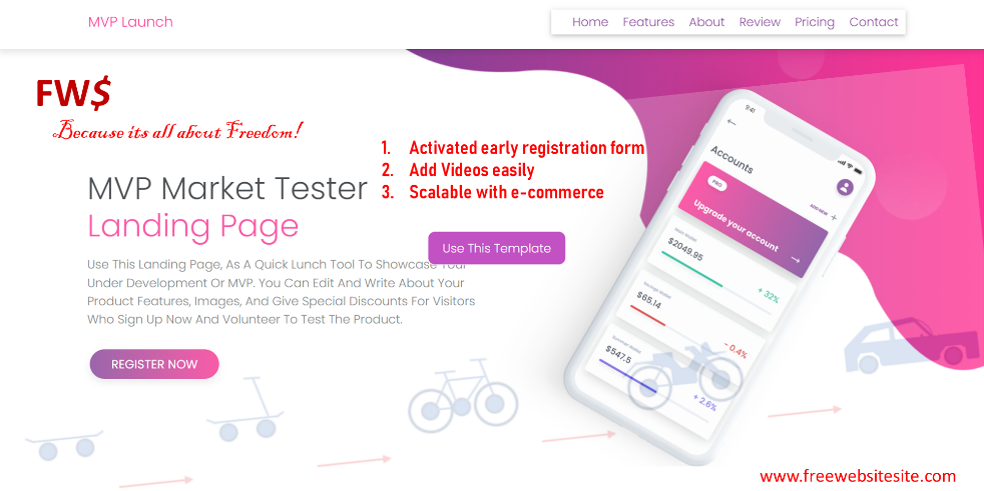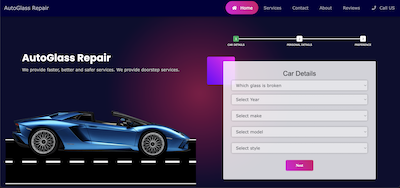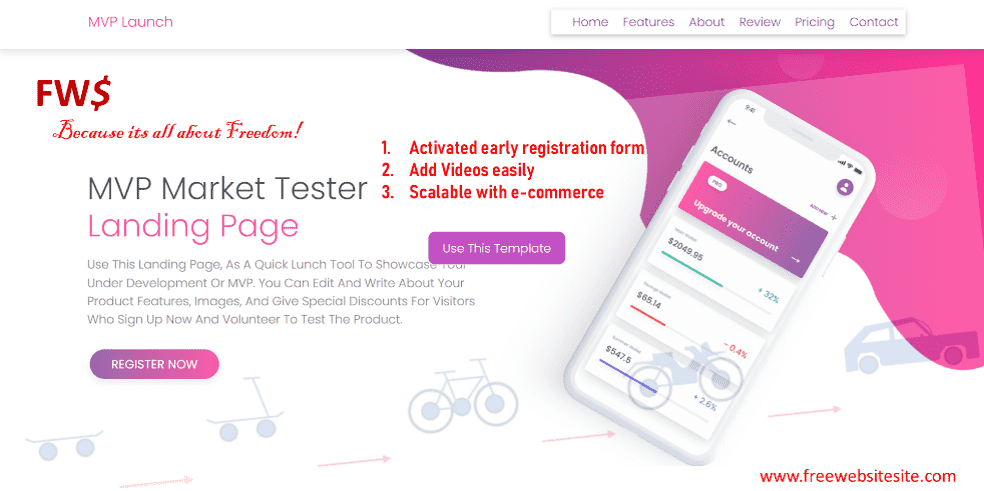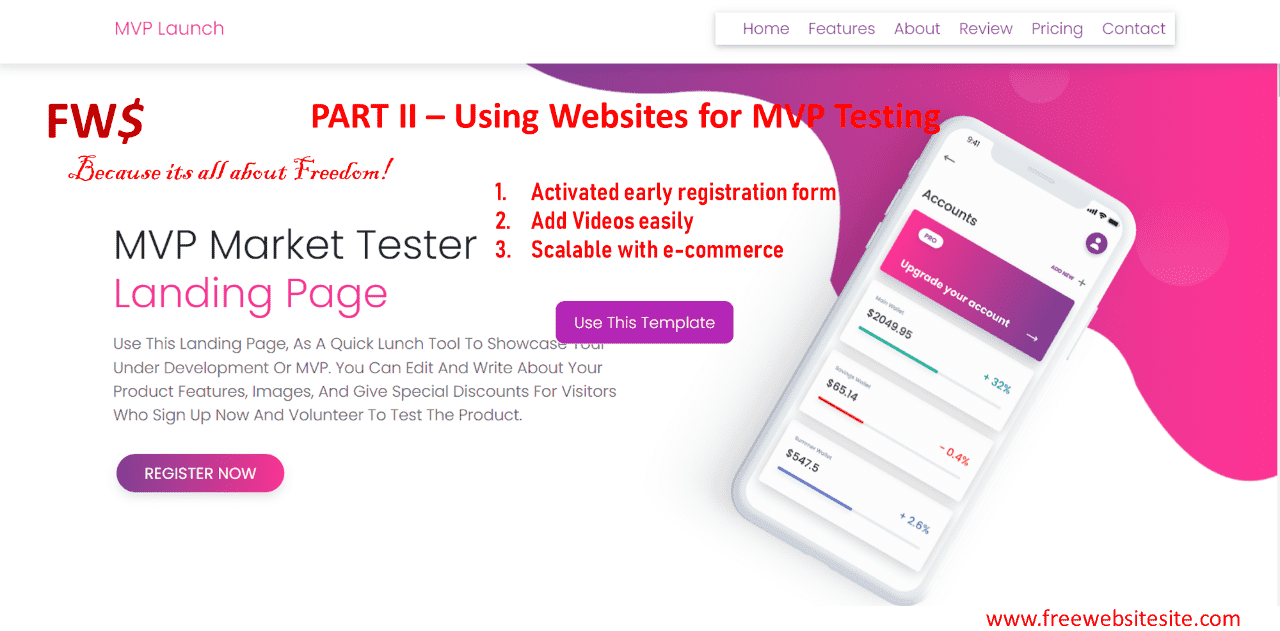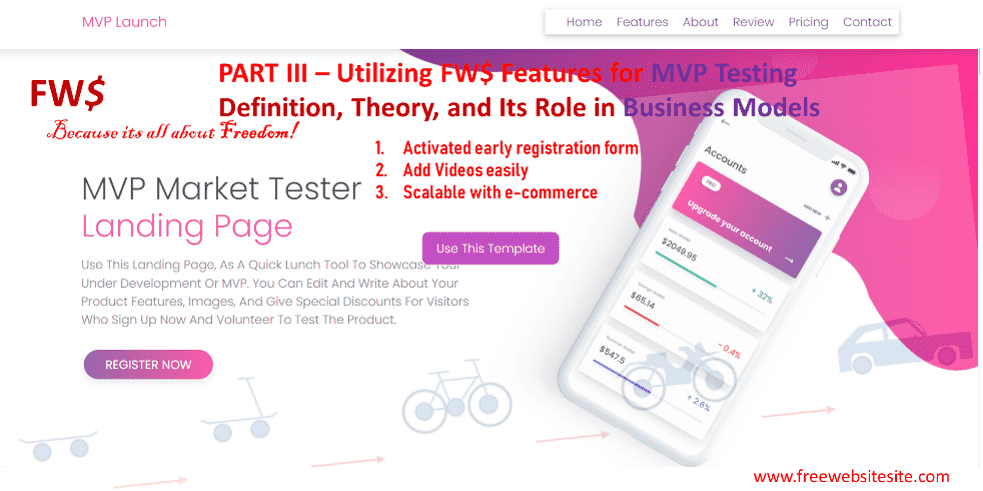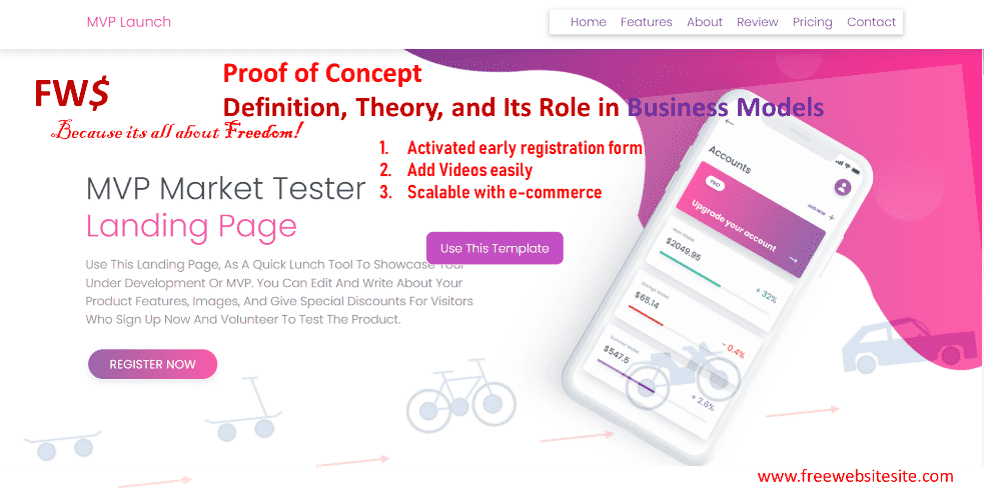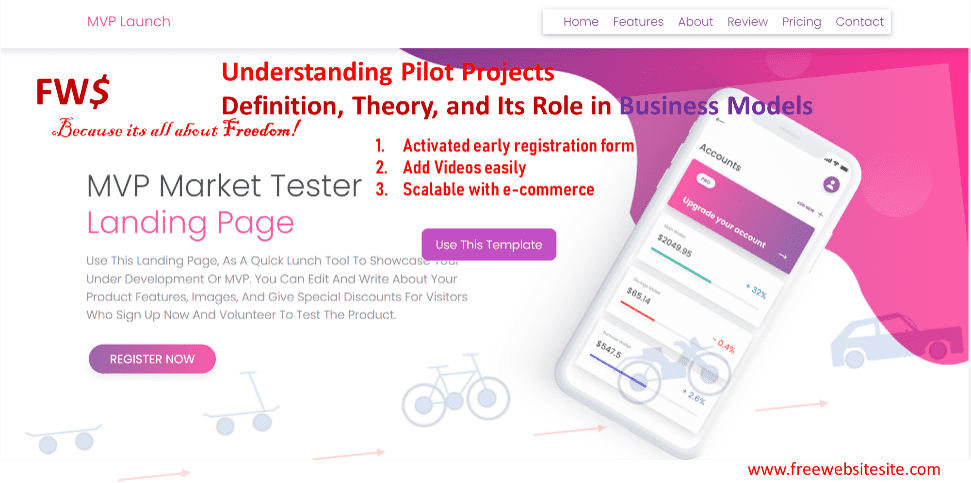How Not Having a Website is Hurting Your Startup: A Humorous, Data-Backed Reality Check with Freewebsitesite

How Not Having a Website is Hurting Your Startup: A Humorous, Data-Backed Reality Check
We got feedback, and we are making amends. We owe you the full disclosure of who are we who write this article and what are our ulterior motives. We are a fast growing commercial e-commerce and web publishing platform, formed with the sole intention of empowering businesses, small and large, with our strength i.e. master architects of FW$ the Web Publishing platform experts in the field. Not everything in this article may apply to you, though we hope, that some of the statistics, paradigms and mindsets we and the professional industry has experienced and helped innumerable entrepreneurs, professional managers and businesses through. And before we usher you into this session, if you are reading this in an email, click to view it on the browser, it has a video about us, and lot more. And Finally, we are a DIY Platform where you can get yourself on top of the digital pyramid of needs, but unlike every other, we provide our customer full service.
So, you’ve started a new business or launching a new product, a spin-off, and subsidiary, depending what stage your business in. You’ve got the innovative idea, a fancy logo, and maybe even an Instagram account with at least 10 followers. You’re ready to take over the world, right? Wrong! Here’s a brutal truth: if your startup doesn’t have a website, you might as well be invisible. Think of it this way—if your business isn’t online, does it even exist?
Let’s dive into why having no website is like showing up to a business meeting in pajamas… with bedhead… and no business card. Spoiler alert: it's not a good look. Lets walk you through a variety of scenarios all masquerading under different names, with one single root, fear.
Tip: Find our Social Learning Series on YouTube.
1. “I’ll Get a Website Later” – Famous Last Words
Many startups think, "I'll get a website later when I'm more established." Well, guess what? 97% of people will go online to find your business, even if they heard about you from a friend or through social media . Imagine how many potential customers go looking for your website, find nothing, and then—poof!—they’re off to a competitor who has their online act together.
Without a website, you're like a ghost startup—existing in people’s minds only fleetingly. Do you really want to be the Casper of the business world?
2. Trust Me, Nobody Trusts You
Here’s the thing: people are skeptical creatures. They want to know they’re giving their hard-earned money to a legitimate business. And believe it or not, 75% of consumers judge a company's credibility based on its website . If you don’t have one, they might assume your company is unprofessional or worse—a scam.
Think about it—would you trust a plumber with no contact info, just a flyer with “CALL ME” written in crayon? A website shows people you’re serious about your business. And that’s where freewebsitesite.com comes in. Your site is ready within minutes, and you can continue to edit it from your phone, which admitted takes a little getting used to, but with our tutorial and live tech support an intelligent entrepreneur like you will find it very easy and may we say your new secret trick to win over your competition. With a professional site, your startup looks polished, trustworthy, and ready to serve customers—even if you’re still working out of your garage. People will see your value proposition succinctly, along with your business location, phone and a smart contact form which is included on most templates that sends customer contacts right to your registered email with no additional set up required, just click publish!
3. How to Miss 4.66 Billion Opportunities
Let’s talk numbers because, well, but you may say, all I need is 400 customers that live in the 50 mile radius from me to be a millionaire, I don't need more! Well its up to your vision. Some can win and keep 400 local customers personally, while some others, have a greater appetite for success, and their targets keep going higher and higher. So what is in the numbers? Numbers don’t lie. In 2023, 4.66 billion people are using the internet . That’s more than half of the global population! Without a website, you’re missing out on billions (yes, BILLIONS) of potential customers.
Imagine for a moment that you’re a baker. You could sell your famous cupcakes to just your local town—or you could reach dessert lovers all over the world! But without a website, only your Aunt Sally and the local dog walker are hearing about your cupcakes. Aunt Sally can only eat so many… Now the same could apply to a master electrician who could build nationwide company on the wings of ambition, or an accountant who goes beyond and services clients nationwide while hiring 15 employees instead of three, and all the more if you have a product to sell, or a wish to sell.
4. Let us crack you another myth, Selling Online: It’s No Longer Optional
In this glorious digital age, oh the glory! its unimaginable, more and more people are shopping online—eCommerce sales are expected to reach $7.4 trillion by 2025 . Without a website, you’re shutting the door on a goldmine of sales opportunities. Online stores are always open, even while you sleep!
With freewebsitesite.com, you can create a sleek, user-friendly website that showcases your products or services, making it easier than ever for people to buy from you. Even if you’re selling hand-knitted socks for cats, someone, somewhere is looking for exactly that.
5. You’re a Social Media Success? Great! You Still Need a Website
Sure, social media is fantastic for reaching new customers, but you know what’s better? Owning your own platform. Social media algorithms change faster than you can say "SEO," and one day, your reach could plummet. A website gives you control, permanence, and a direct line to your customers.
And here’s the kicker: A website can boost your social media engagement by driving traffic between platforms. You can collect email addresses, host blogs, offer exclusive deals—the list goes on.
6. The SEO Game – You’re Not Even Playing
Here’s some food for thought: Google processes over 3.5 billion searches per day . If you don’t have a website, search engines have no clue you exist, which means people searching for your products or services will never find you.
A website optimized for SEO (Search Engine Optimization) allows you to rank in search results, bringing potential customers right to your virtual doorstep. Without SEO, you’re like a store in the middle of a desert with no signs leading to it—except the tumbleweeds.
freewebsitesite.com offers built-in SEO features, ensuring that your website gets seen by the people who are already searching for what you offer. And you don’t have to be a tech genius to get started—it’s all handled for you!
7. Professionalism Without Breaking the Bank
Let’s address the elephant in the bed room: cost. You might think having a professional website is expensive. That’s why you’re stuck in the “I’ll get to it later” mentality, right? But with freewebsitesite.com, the cost is right in the name—FREE. There are no hidden fees, no design charges, and you don’t need to hire a web developer.
Plus, you can update your site as your business grows—add more products, launch new services, or create a blog to engage with your audience.
Statistical Truths – The Impact of Websites on Startups
- 48% of consumers won’t consider a business if it doesn’t have a website .
- 63% of purchase decisions begin with an online search .
- Startups with websites have 200% higher revenue growth rates .
It’s clear. Not having a website isn’t just a minor mistake—it’s a huge opportunity loss. Your website is your digital storefront, and freewebsitesite.com gives you all the tools to make sure your startup doesn't end up as an “if only.”
In Conclusion: Don’t Be the Invisible Startup
Running a business without a website in 2024 is like running a marathon barefoot—painful and completely avoidable. If you want to build trust, attract customers, and grow your startup, it all starts with having an online presence.
The solution? freewebsitesite.com. It’s easy, free, and lets you focus on what you do best—running your business while we handle the technical side. So don’t be a ghost startup. Sign up today and make your mark online!
Related Templates
The Impact of Having vs. Not Having a Website on New Startups: A Statistical Deep Dive
Irrespective of the stage your startup is in, having an online presence is critical for any new startup looking to succeed. The difference between a startup with a website and one without can be a matter of survival. The statistics speak for themselves—startups with websites consistently outperform those without, and the gap widens as the business lifecycle progresses.
This article will explore the lifecycle of a startup with and without a website, presenting statistics that highlight the significant differences in performance, growth, customer acquisition, and long-term survival.
1. Early-Stage Startups: Website vs. No Website
Customer Trust and Visibility
One of the first challenges for a new startup is building trust and gaining visibility. Having a website significantly boosts a company’s credibility, which directly translates into higher customer trust and engagement.
- 75% of consumers admit to judging a company’s credibility based on its website design .
- A study by Clutch revealed that 29% of small businesses don’t have a website, and 91% of consumers visit a company's website before making a purchase decision . Without a website, these startups lose out on a majority of potential customers during the consideration phase.
Startups without a website often rely on word of mouth or social media, both of which can be limiting. On average, 97% of consumers search for local businesses online before making any decisions . Without a website, a startup is essentially invisible to the vast majority of its potential audience.
Lead Generation and Conversion
Websites act as the primary platform for lead generation. Research shows that 72% of consumers prefer to engage with businesses via their websites rather than through other channels like social media or phone calls .
- A study conducted by the Local Search Association found that small businesses with websites generated 126% more leads than those without.
- 48% of businesses without a website cite a lack of leads as a significant barrier to growth .
Startups without websites also have to rely on less efficient methods to collect customer information, making it more difficult to convert potential leads into customers.
2. Mid-Stage Startups: Growth Rate and Market Expansion
Revenue Growth and Market Share
At the mid-stage of the startup lifecycle, having a website is crucial for scaling and expanding market reach. The difference in revenue growth rates between startups with websites and those without is staggering.
- Startups with websites grow at an average rate of 200% higher than those without .
- 78% of startups with websites report revenue growth within their first three years compared to just 32% of startups without websites .
Startups with websites also have the opportunity to engage in eCommerce. By selling products or services directly through their websites, startups can tap into global markets, leading to higher revenue potential. A study from Statista showed that 93% of global consumers prefer shopping online rather than in physical stores , indicating a significant missed opportunity for startups without an online presence.
Market Expansion and Global Reach
Having a website allows startups to expand beyond their local market, which is critical for businesses looking to scale.
- Over 50% of global consumers say they discover new products through brand websites .
- Startups with websites are 5 times more likely to expand into new markets within the first five years than those without, according to research by the Small Business Administration (SBA).
Conversely, startups without websites face difficulty reaching customers beyond their immediate geographical location, limiting their growth potential. This can leave them vulnerable to local market saturation, which reduces their chance of long-term survival.
3. Late-Stage Startups: Longevity and Survival Rates
Survival Rate of Startups
The importance of having a website becomes even more apparent in the later stages of a startup’s lifecycle. As startups mature, they must continuously attract new customers, streamline operations, and adapt to changing market conditions. Startups with websites are better equipped to handle these challenges and maintain their competitive edge.
- A report by Verisign showed that 91% of customers are more likely to visit a small business's website when looking for products or services, and 56% of them consider a company without a website as "less credible" .
- Statistically, 60% of businesses that don’t have a website fail within five years, while only 30% of businesses with websites fail during the same period .
Customer Retention and Business Growth
Startups that focus on online customer engagement have a much higher chance of retaining their existing customers, thanks to tools like email marketing, SEO, and content creation—elements that are powered by a website.
- Businesses that engage in consistent website marketing (through blogs, email newsletters, or content updates) see a 126% higher customer retention rate .
- 53% of marketers say blogging is their top content marketing priority, and businesses that blog generate 67% more leads per month than those that don't .
Without a website, startups miss out on these essential marketing and retention tools. They must rely solely on traditional methods of customer interaction, which are less effective and more expensive.
4. Key Statistical Findings: Websites and Startups
The statistics below summarize the stark differences between startups that have a website versus those that don’t:
- 93% of business purchase decisions begin with an online search, meaning startups without a website are nearly invisible to a huge portion of potential customers .
- Businesses with websites see an average revenue increase of 60% compared to those without .
- A report from Forbes revealed that 8 out of 10 consumers would not engage with a business that has an outdated or non-existent website, making it essential not only to have a site but to maintain it regularly .
5. Conclusion: The Lifecycle of Startups with Websites vs. Startups Without
The data clearly show that having a website isn’t just a "nice-to-have" but a crucial tool for startup success. From customer trust and lead generation in the early stages to revenue growth and global expansion in the middle stages, and ultimately survival and longevity in the later stages, a website is an integral part of the startup lifecycle.
Startups that choose not to invest in a website are at a severe disadvantage. They miss out on opportunities to scale, lose customer trust, and face significant barriers to revenue growth. Meanwhile, startups with websites enjoy higher growth rates, improved customer retention, and better long-term survival odds.
In conclusion, if your startup doesn’t have a website, it’s time to seriously reconsider that decision. The statistics don’t lie—having an online presence is key to unlocking success in today’s competitive startup landscape.
For any startup founder reading this, the solution is clear: get a website, and the sooner, the better. Platforms like freewebsitesite.com make it easy and affordable to build a professional, SEO-friendly website, helping you reach your full potential.
